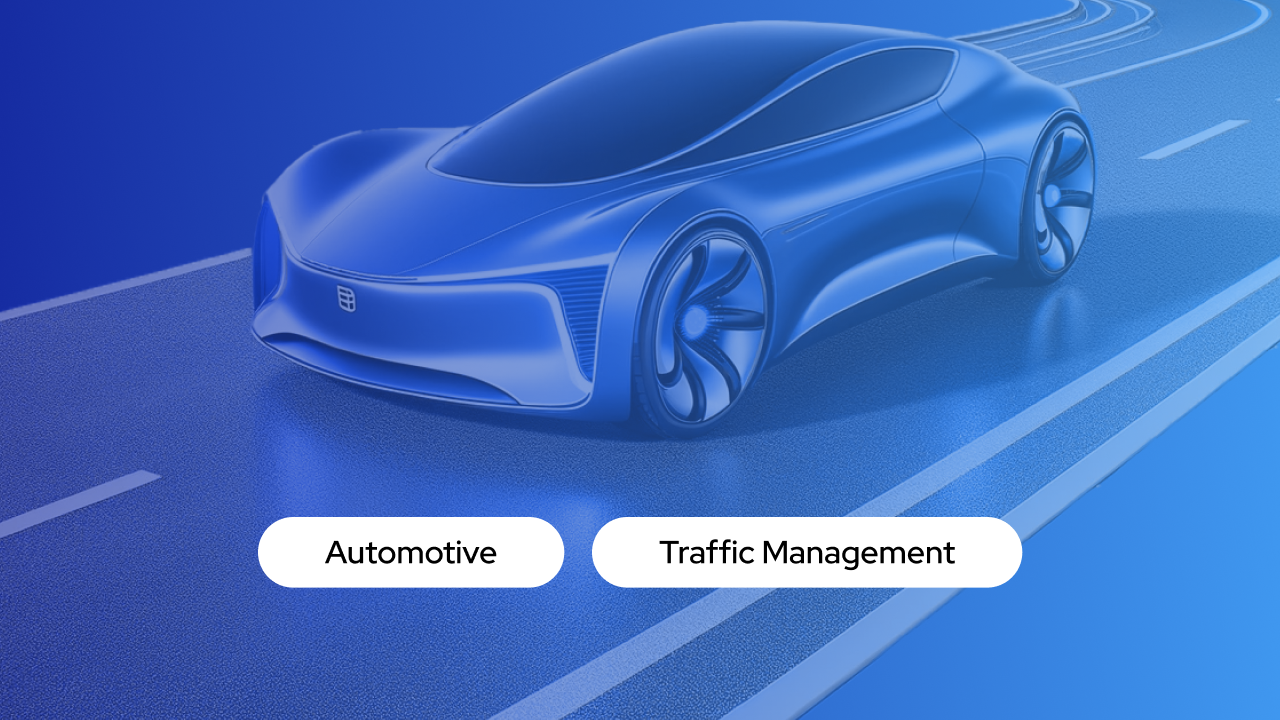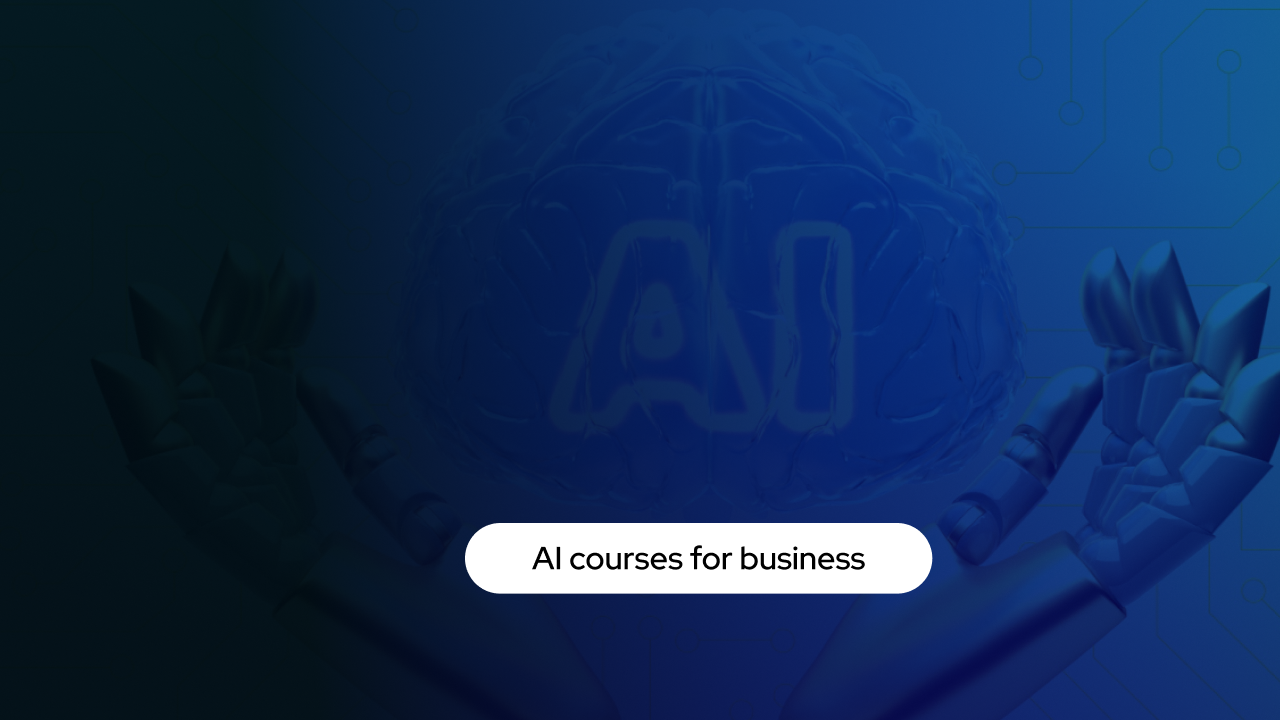The Revolution in IT Outsourcing: How Artificial Intelligence Transforms the Service Delivery Model

Artificial intelligence is already transforming the IT industry in various areas: cybersecurity, software development, outsourcing, data center management, creating new jobs and professions, and disrupting traditional business models.
Let's look at examples of how different companies use AI to gain a competitive advantage and what are the forecasts for the future of IT.
What is artificial intelligence, and why is it essential for IT?
Artificial intelligence is a branch of computer science that creates systems to perform human-like tasks such as language and text recognition, content learning, and problem-solving.
AI uses machine learning and deep learning techniques to analyze vast amounts of data and recognize patterns. Artificial intelligence is not just a buzzword. He helps. It improves. Right here and right now.

AI is critical to IT because it can help IT teams cope with the increasing complexity and demands of modern IT environments in outsourcing. Artificial intelligence can help IT professionals innovate and create value for customers and businesses.
Main advantages of artificial intelligence service delivery
- Access to talent and technology. Artificial intelligence service delivery and machine learning services can give you access to qualified, experienced professionals who can work on your projects using the latest tools and platforms. You can leverage their knowledge and capabilities to create high-quality, customized AI solutions that meet your goals and requirements. You can also save on the cost and effort of hiring, training, and retaining your own AI staff.
- Fast entry to the market. Outsourcing AI and service delivery models can help you accelerate the development and implementation of your artificial intelligence solutions. You can avoid the delays and risks associated with building your AI infrastructure and team and focus on your core business. You can also benefit from the best practices and methodologies of an outsourcing provider who can ensure that your AI solutions are delivered on time and within budget.
- Scalability and flexibility. Outsourcing AI and machine learning services can help you scale up or down your AI capabilities to meet changing business needs. You can easily adjust the scope and duration of your AI projects and access more or less resources as needed. You can also choose from different outsourcing models, such as project-based, dedicated team, or hybrid, to suit your preferences and expectations.
- Innovation and differentiation. AI driven IT outsourcing services can help you benefit from the innovation and creativity of an outsourcing provider who can offer you new and fresh perspectives and ideas for your AI solutions. You can also benefit from their industry experience and domain knowledge to help you solve problems and opportunities in your market. Outsourcing AI and machine learning services allows you to create unique, value-added AI solutions that differentiate your business from your competitors.
How can it help your business grow and innovate?
Artificial intelligence (AI) is changing the business world in many ways. From automating tasks and increasing efficiency to improving customer service and insights, AI can offer a competitive advantage to any organization. However, developing and implementing artificial intelligence solutions can be complex, costly, and time-consuming. This is why many companies outsource their AI managed services to external providers with the knowledge, resources, and experience to meet their AI needs. In this section, we'll look at some benefits of AI outsourcing and how it can help your business grow and innovate.

How AI Strengthens Cybersecurity?
One area where AI can have a significant impact on IT is cybersecurity. Cybersecurity is the practice of protecting networks, systems, and data from unauthorized access or attacks. It is critical to IT as it ensures the confidentiality, integrity, and availability of information and services.
However, cybersecurity is becoming increasingly complex as cyber threats become more sophisticated and frequent. According to IBM, the average cost of a data breach in 2023 was $3.86 million. Additionally, there is a need for more trained cybersecurity professionals who can detect and respond to cyberattacks. This is where artificial intelligence can help.
AI can enhance cybersecurity by:
- Detect anomalies and suspicious activity in real-time using machine learning algorithms that learn from historical data and user behavior.
- Automate tasks such as threat analysis, incident response, and patch management using natural language and image processing techniques that can understand text and images.
- Predict future attacks and vulnerabilities using deep learning models that can learn from complex data and generate insights.
For example, ALLSTARSIT for cybersecurity is an artificial intelligence platform that analyzes unstructured data, such as blogs, news, and social media posts, to provide context and insights for cybersecurity analysts.
How is AI changing business models?
Business models are how organizations create, deliver, and capture value for their customers and stakeholders.
Business models are critical to IT because they determine how IT generates revenue and competes in the marketplace.
However, business models can change as technology advances and customer expectations change. As a powerful business tool, AI can enable IT to create new business models or transform existing ones.
Here are some of the ways AI can change business models in IT:
- Creating new value propositions. These are the benefits or solutions that IT companies offer their customers using AI capabilities such as personalization, recommendations, prediction, or generation. For example, Netflix uses AI to provide personalized recommendations and create content for its subscribers.
- Creating new value networks. These are relationships or partnerships established by IT companies with other organizations or entities using AI capabilities such as collaboration, coordination, or communication. For example, ALLSTARSIT partners with organizations in various industries, such as healthcare, education, or finance, to provide cognitive solutions.
- Dynamic change in product costs, profits, and expenses. This is a change in the sources or mechanisms of generating revenue or reducing costs using AI capabilities such as automation, optimization, or innovation. Thus, Uber uses AI to automate the selection of drivers and optimize pricing and new services such as Uber Eats or Uber Freight.
What are your predictions for the future of IT?
The advances and challenges associated with artificial intelligence will determine the future of IT.
According to Gartner, by 2025:
- 70% of organizations will shift their focus from big to small data. They will use more diverse and distributed data sources to gain information and make decisions.
- 50% of enterprise applications will use conversational AI. These applications use natural language interfaces, such as chatbots or voice assistants, to interact with users and provide services.
- 40% of organizations will use explanatory AI. They will use techniques that can make their AI systems more transparent and understandable to humans.
However, AI also poses certain risks and challenges for IT.
First, there are moral issues. Moral dilemmas or conflicts such as bias, discrimination, confidentiality, or accountability are already occurring. For example, Amazon faced criticism for using an artificial intelligence system that discriminated against female job applicants.
In addition, there are regulatory issues. We need legal regulations or standards to govern the use or development of artificial intelligence systems. The European Union has already proposed a regulation on trustworthy artificial intelligence, setting requirements for using AI in high-risk areas.

Therefore, IT professionals and organizations must be aware of the opportunities and challenges associated with artificial intelligence in outsourcing and prepare for the future.
We must already train specialists with knowledge of new tools related to artificial intelligence, such as data science, machine learning, natural language processing, and deep learning.
In addition, ethical and responsible practices for using and developing AI systems, such as adhering to principles, guidelines, and frameworks for creating reliable systems, must be implemented.
AI is changing the IT outsourcing transformation industry in many ways.
It strengthens cybersecurity, improves software development, creates new jobs and skills, and changes business models. It also poses certain risks and challenges, such as ethical issues, regulatory issues, and skills gaps. IT professionals and organizations must recognize AI's impact and prepare for the future by learning new skills, practicing ethics, and innovating.
AI is not just a technology. It's a way of thinking. It's a way of thinking and doing things differently. It's a way to create value and improve the world.




